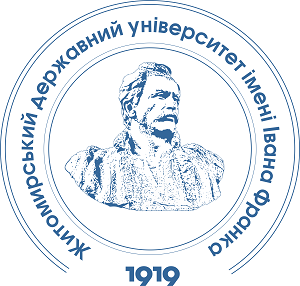RESILIENCE AND POST-TRAUMATIC PERSONALITY GROWTH AS A RESULT OF STRESS
DOI:
https://doi.org/10.32782/psy-2024-3-7Keywords:
stress, resilience, post-traumatic growth, personalityAbstract
In recent years, the psychological phenomenon of resilience has been heavily studied. While science is still far from presenting a complete theory of this phenomenon, however, we already can discuss directions of this scientific search: its causes (drivers caused by stress), the effects of manifestation (adjustment and positive adaptation; ability to build a prosperous life in difficult circumstances), nature (static resilience (a personality trait) or dynamic resilience (a certain process)), a trajectory of resilience (stability of mental functioning in a stressful situation; quick return to one's own norm after a destructive impact; acquisition of qualitatively new personal traits and subsequent successful functioning after getting out of stress) etc. In particular, there was a need to tease apart the concept of resilience with concepts that describe similar or related phenomena. In this context, intersection of the resilience phenomena and post-traumatic growth is often discussed. Currently, Ukrainian scientists have objective social conditions for extensive research in this direction. There is also a keen interest of psychological practice in the results of such studies for the creation of psychological assistance programs for persons suffering from the stress of war. Prolonged stress in the conditions of war threatens exhaustion, disorders, psychosomatic disorders if left unattended, but at the same time it is a factor of post-traumatic growth, disclosure of personal potential to the fullest extent. Prevention of the destructive impact of long-term stress on psychosomatic well-being is the essence of modern psychological care. So far, there are not enough empirical studies to make theoretical generalizations that will serve as commonly accepted guidelines for distinguishing these psychological phenomena.
References
Асонов Д., Хаустова О. Розвиток концепції резилієнсу в науковій літературі протягом останніх років. Психосоматична медицина та загальна практика. Т. 4. № 4. 2019. URL: http://surl.li/lbtbm (дата звернення 21.12.2023).
Климчук В.О. Психологія посттравматичного зростання : монографія. Кропивницький : Імекс-ЛТД, 2021. 158 с.
Лазос Г.П. Посттравматичне зростання: теоретичні моделі, нові перспективи для практики. Актуальні проблеми психології. Т. I. Вип. 45. 2016. С. 120–127.
Музичко Л. Психологічна ресурсність особистості та її резильєнтність Журнал соціальної та практичної психології. 2023. № 1. С. 28–34.
Шелюг О.А. Багатовимірність феномену посттравматичного росту: біологічний, психологічний та соціокультурний складники особистісних трансформацій. Психологія і особистість. 2014. № 1 (5). С. 112–129.
Kalka N., Blikhar V., Tsyvinska M., Kuzo L., Marchuk A., Katolyk H. Analysis of Peculiarities and Components of Resiliency of People Facing Military Aggression against Ukraine. BRAIN. Broad Research in Artificial Intelligence and Neuroscience. 2022. Vol. 13, Issue 3. Р. 320–339. URL: https://doi.org/10.18662/brain/13.3/370 (дата звернення 21.112024).






